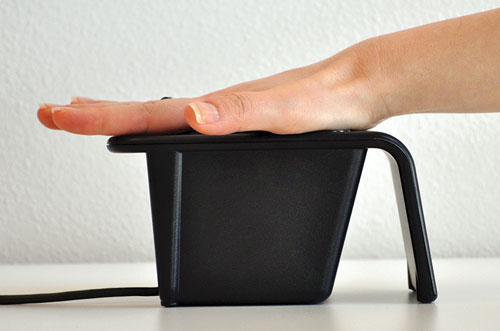In an effort to streamline patient registration, St. Joseph Mercy Health System is installing a biometric palm-scanning technology called PatientSecure in all five of its southeast Michigan locations.
Created by Imprivata, the PatientSecure system operates by scanning the vein pattern of a registered patient’s hand on a black box. When a patient places their hand on the box, the device uses near-infrared light to process the vein patterns and create an encrypted and protected digital file, which is then linked to the patient’s electronic health record to complete the registration process.
“The vein patterns of our hand are just as unique as our fingerprints, and are more reliable than name and birthdate at the point of patient registration,” says Pete Beyer, regional manager of patient access for St. Joseph Mercy Health System. “The device helps us register patients more accurately and in way that better protects the security of personal information.”
Launched in June, St. Joseph Mercy Oakland in Pontiac was the first location to use the palm-scanning technology, while PatientSecure will be installed in the beginning of November at all patient registration areas in St. Joseph Mercy Ann Arbor, Chelsea, Livingston, and Livonia.
Patient enrollment in the program is voluntary, and a palm scan can only be used for patient identification.
St. Joseph Mercy Health System is a member of Trinity Health, a Livonia-based Catholic health care system. The organization operates in 22 states, including seven counties in Michigan: Jackson, Lenawee, Livingston, Macomb, Oakland, Washtenaw, and Wayne. The five hospitals in Michigan employ more than 14,000 people and a medical staff of 2,700 physicians.






